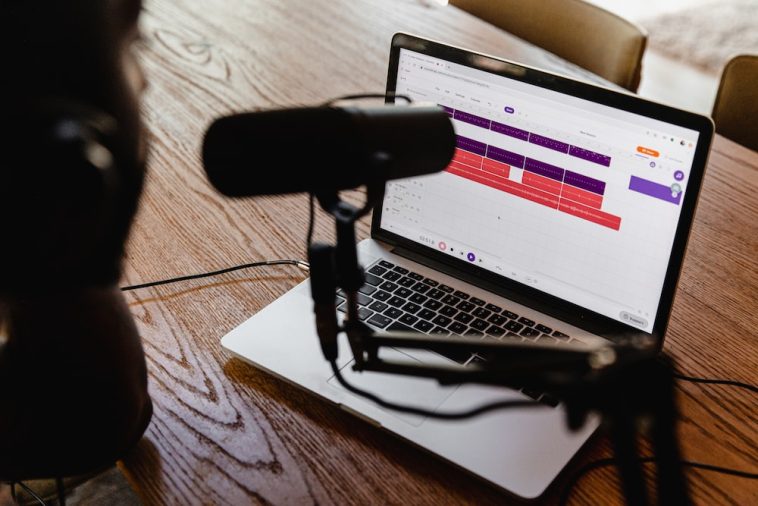Introduction.
If you’ve thought about starting a podcast, you’re not alone. With millions tuning in to podcasts each day, the platform has exploded in recent years.
Now, Facebook has opened the door for podcasters, making it easier than ever to reach your audience right where they already hang out.
In this article, I’ll walk you through everything from setting up your podcast on Facebook to promoting it effectively. I’ll also cover the pros and cons, answer common questions, and leave you with a thought-provoking conclusion.
Why Choose Facebook for Podcasting?
Facebook is home to over 2.8 billion active users globally, and it recently introduced features specifically designed to support podcasters.
From the News Feed to Stories, Facebook is designed to keep people engaged.
With its vast audience and podcast-friendly features, it’s an ideal platform for any podcaster looking to grow and engage a loyal audience.
Plus, Facebook offers tools like real-time analytics and community-building groups that can take a podcast from a hobby to something more serious.
How Do I Start a Podcast on Facebook?
Step 1: Plan Your Podcast
1. Choose Your Niche: Focus on a specific area that interests you and has an audience on Facebook.
Whether it’s true crime, wellness, finance, or pop culture, having a well-defined topic helps attract listeners who are genuinely interested in your content.
2. Plan Episodes and Format: Decide on an episode length and format that suits your style. Podcasts generally range from 20 minutes to an hour, but it depends on what fits your content.
Think about the style too—do you want to do interviews, tell stories, or keep it as a solo commentary?
Step 2: Set Up Your Facebook Page
Having a Facebook Page dedicated to your podcast helps in branding and allows you to keep your followers updated. Here’s how to set it up:
- Create a New Page: Log in to Facebook and click on “Pages.” Click “Create New Page,” and fill in details like your podcast name, description, and profile picture.
- Customize Your Page: Add cover art that reflects your podcast’s theme. Fill out the “About” section with a short description and what listeners can expect.
- Enable Podcast Tab (U.S. Only for Now): In regions where Facebook’s Podcast feature is available, add the Podcast Tab to your Page by going to Settings > Templates and Tabs. If you’re not in the U.S., you can still post podcast episodes manually.
Step 3: Publish Your Podcast on Facebook
Once your Page is set up, it’s time to upload your episodes.
- Connect Your Podcast’s RSS Feed: Facebook’s podcast feature works by syncing directly with your RSS feed, automatically updating episodes whenever you release new ones.
- Manually Share Episodes (If RSS Isn’t Available): If you’re not in a region with direct RSS connectivity, upload episodes manually by sharing links to your podcast from platforms like Spotify or SoundCloud.
Step 4: Promote and Grow Your Audience
Use Facebook’s social features to reach and engage with listeners:
- Share Teasers and Clips in Stories or Posts: Use short audio or video clips to build hype.
- Engage with Comments and Messages: Respond to listener questions and comments to create a community vibe.
- Use Facebook Ads to Reach a Wider Audience: Running targeted ads can help you attract listeners in specific demographics.
- Host Live Sessions: Facebook Live can give you a way to interact directly with fans, answer questions, and discuss episodes.
Pros and Cons of Starting a Podcast on Facebook
Pros
- Vast Audience Reach: With Facebook’s global user base, there’s a high chance of finding a target audience.
- Easy to Promote and Engage: Facebook is social by design, making it easier to create a community.
- Integrated Monetization Options: Facebook offers monetization features, like in-stream ads, for eligible content creators.
- Facebook Groups: You can start a group for your podcast listeners, creating a space for discussion and engagement.
Cons
- RSS Feed Integration Not Available Everywhere: Currently, Facebook’s podcast feature is only available in the U.S.
- High Competition: Facebook is filled with content; it can be hard to stand out.
- Algorithm Limitations: Posts don’t always reach everyone, as they’re filtered by Facebook’s algorithm.
- Technical Requirements: Setting up a good-quality podcast involves equipment, audio editing skills, and some technical know-how.
FAQ
1. Is it free to start a podcast on Facebook?
Yes, starting a podcast on Facebook is free. You’ll need equipment like a microphone, but creating a Facebook Page and uploading content is completely free.
2. Can I upload video podcasts on Facebook?
Yes! You can upload video podcast episodes as video posts or use Facebook Live for interactive podcast sessions.
3. How do I know if my content is reaching people?
Facebook provides analytics on Pages, where you can track engagement, views, likes, and comments to understand your audience better.
4. Can I earn money from my Facebook podcast?
Facebook offers in-stream ads for eligible content creators, and you can also create paid events or partner with brands for sponsorships.
5. What equipment do I need to start a podcast on Facebook?
A good microphone, headphones, and editing software are the basics. As you grow, you might want to invest in higher-quality audio equipment.
Conclusion
Facebook has made it simpler for creators to start and grow their podcasts, offering a massive audience, engagement tools, and some monetization options.
While it may not replace traditional podcast platforms entirely, it’s an incredible way to reach new listeners and build a community.
So, have you considered starting your podcast on Facebook? Let me know your thoughts on where you see the best potential for growing your podcast!




GIPHY App Key not set. Please check settings